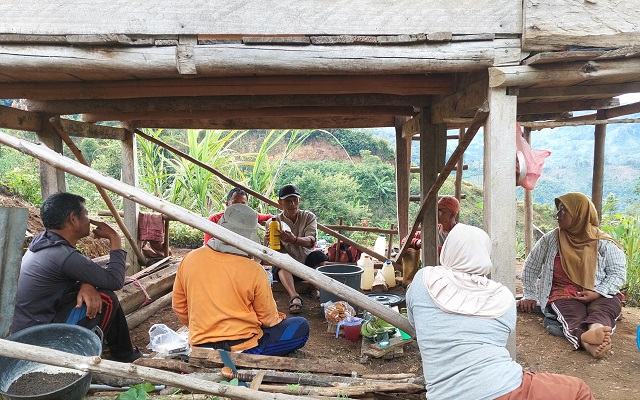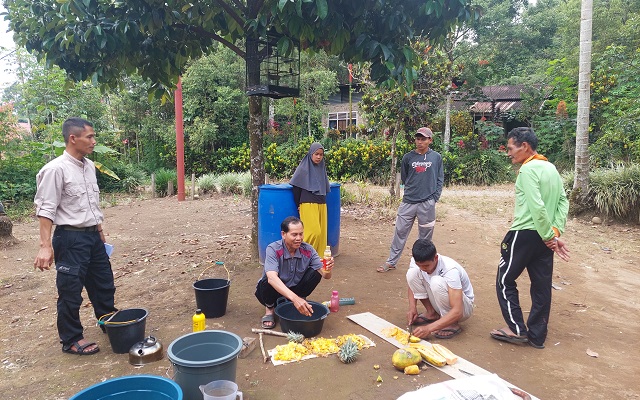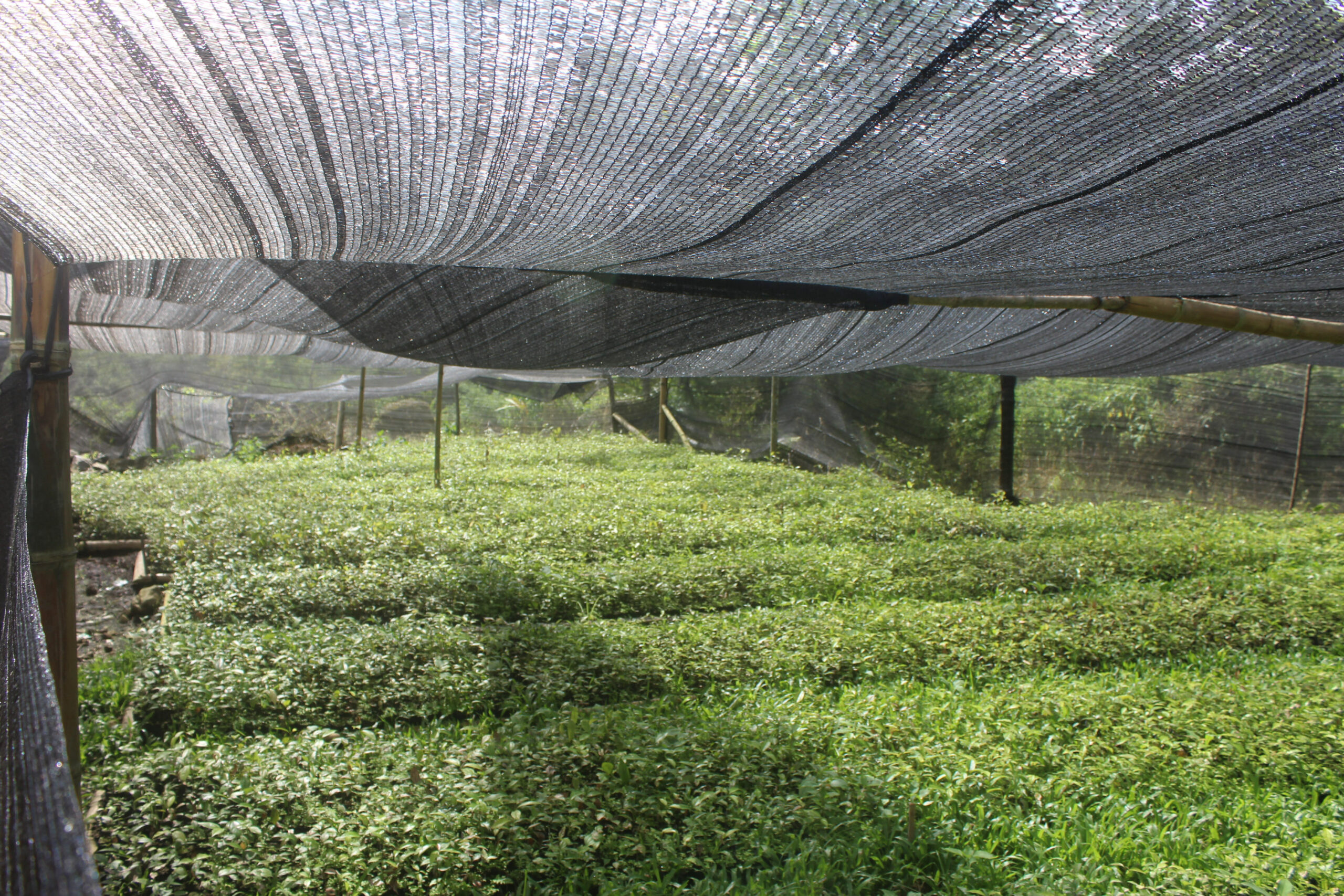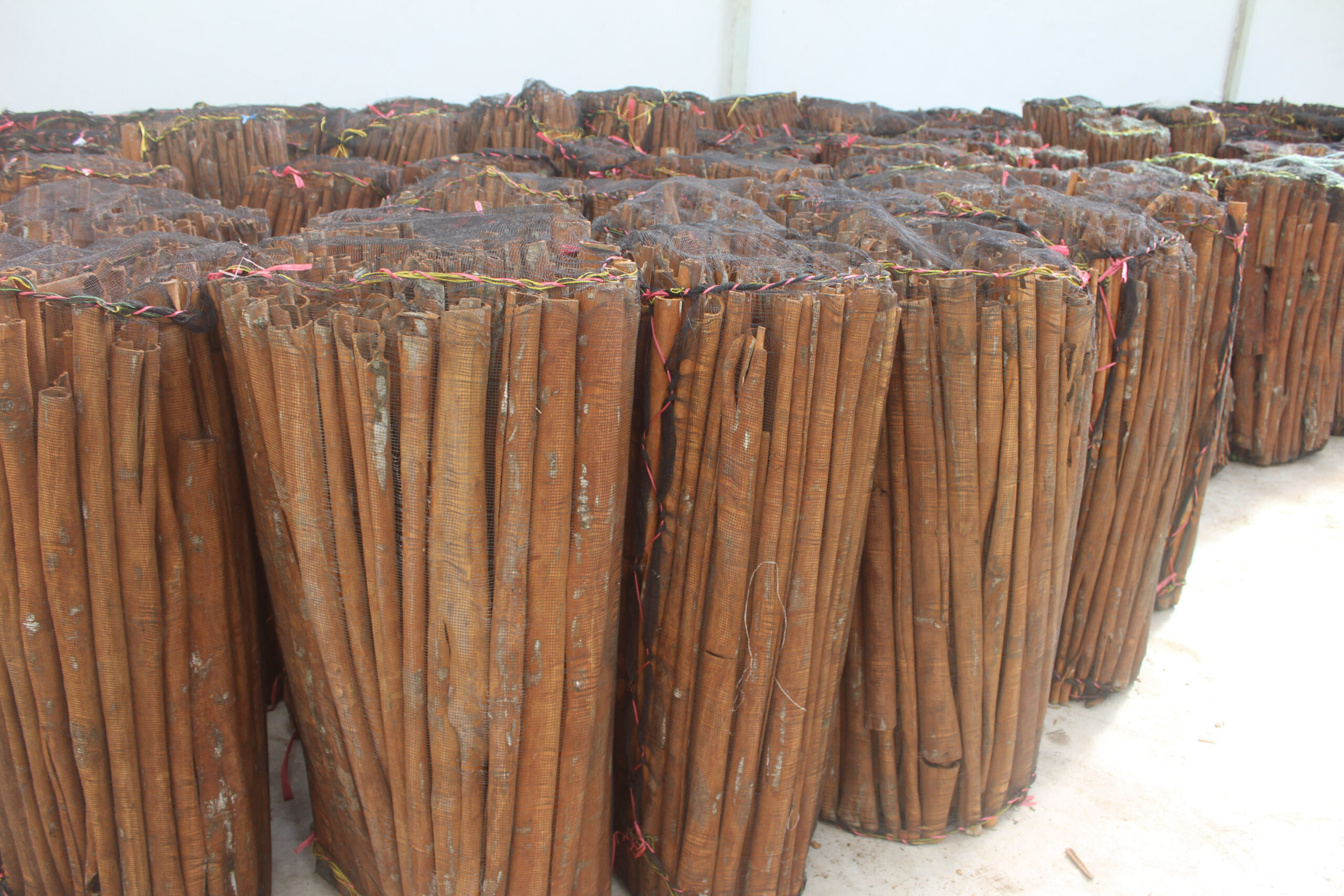Reducing deforestation by strengthening forest communities in Kerinci
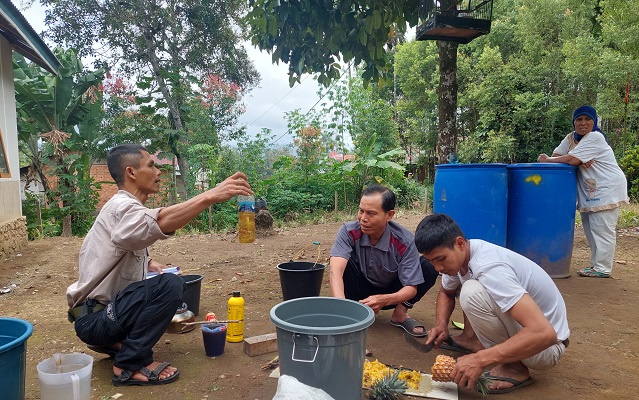
With its 57 million tons of CO2 emissions, Jambi province represents 3 per cent of Indonesia’s yearly carbon emissions. According to forecasts, this amount will increase to 74 million tons in 2030, caused by degradation processes in the agriculture and forestry sectors. Some of the export-value commodities that support the Jambi province’s economy are cinnamon and coffee in the Kerinci Regency. The Kerinci production forest consists mainly of agroforestry land. Without a proper agroforestry management, they however impact deforestation and land encroachment. Technically, forest farmers’ knowledge about the agroforestry system is limited. At the same time, average income is low. The IKI Small Grants project creates a sustainable forest community and increases the community income by improving the quality and diversification of products. In addition, it aims to encourage regional and local governments to adopt policies that support sustainable forest communities.
INITIAL SITUATION
The deforestation in Indonesia reached 375,860 hectares between 2018 and 2019, most of which occurred in production forests. Jambi Province has 60 per cent of deforested areas. Deforestation is caused by expanding settlements, factories, and plantation businesses in forest areas. Plantation commodities in production forests are dominated by rubber, coffee, and cinnamon. About 73 per cent of agroforestry land dominates the Kerinci production forest, with about 60 per cent cinnamon and coffee plantations. Most cinnamon plants in production forest areas are directly adjacent to the Kerinci Seblat National Park. The uncontrolled harvesting of cinnamon will cause a 76 per cent decrease in land cover.
TARGET GROUP
The target groups and beneficiaries of this program are three forest farmer groups with permits to manage the Kerinci production forest, three village governments, a women’s group, village-owned enterprises, and personnel of local governments of Kerinci Regency. This sums up to 135 people, further adding on their respective household members. The proportion of women beneficiaries sums up to 35 per cent.
APPROACH AND ACTIVITIES
The Perkumpulan Desa Lestari focuses on empowering, mentoring, and increasing villagers’ capacity in participatory, independent, and sustainable village development. It does so by optimizing village resources potential for the welfare of villagers responsible and based on environmental sustainability.
In Kerinci, the project realizes sustainable forest communities of forest farmers and village communities around the forest, based on sustainable production. This project considers three aspects: regulations, good practice of cinnamon and coffee cultivation, and increasing farmer income. The latter is reached by an increased value of commodities through product diversification and farmer´s market access. To achieve these goals, the project advocates for regional and village government regulations on sustainable management of cinnamon and coffee commodities to be passed or signed. Technically, the policies have to be implemented by village government regulations that call for an agroforestry system, selective logging mechanisms for cinnamon commodities, reduce the intensity of chemical products, and other aspects. Furthermore, the project increases the capacity of the forest farmers groups about sustainable agroforestry practices. These include good handling practices for coffee and cinnamon commodities, institutional management groups, and an internal commodity control system.
To increase the income of farmers, a village-based corporation is set up, allowing for more trading and market access for cinnamon and coffee businesses. It encourages the creation of market opportunities through village-owned enterprises. They will become a platform for controlling product quality and standards and expanding market access for farmers’ cinnamon and coffee products.
LATEST PROJECT HIGHLIGHTS AND IMPACTS
- Advocacy to regional governments to encourage regional policies to protect sustainable commodities as part of reducing deforestation;
- 42 farmer groups trained in practices of sustainable agroforestry practices for cinnamon and coffee
- Multi-stakeholder collaborations at the village level to clarify the roles and functions of forest groups conducted
- 30 hectares of Kerinci production forest land applies agroforestry systems
CAPACITY DEVELOPMENT
IKI Small Grants supports PDL in its organisational capacity development through:
- Advanced trainings in spatial information data management with GIS (Geographic Information System).
- Advanced trainings about Nationally determined contributions (NDCs) and REDD++ implementation principles.
ABOUT THE ORGANISATION
Perkumpulan Desa Lestari (PDL) was established in 2016 and has the vision to realize an empowered community by encouraging the creation of sustainable environmental management in Indonesia. Fairness, transparency, participation and cooperation have become the organization’s foundation for achieving our vision.
Since its establishment, PDL has carried out programs in various parts of Indonesia in more than ten provinces and over 50 villages. PDL partners with private companies, the central government, local civil society organizations, international non-profit organizations, and universities in implementing its programs.

